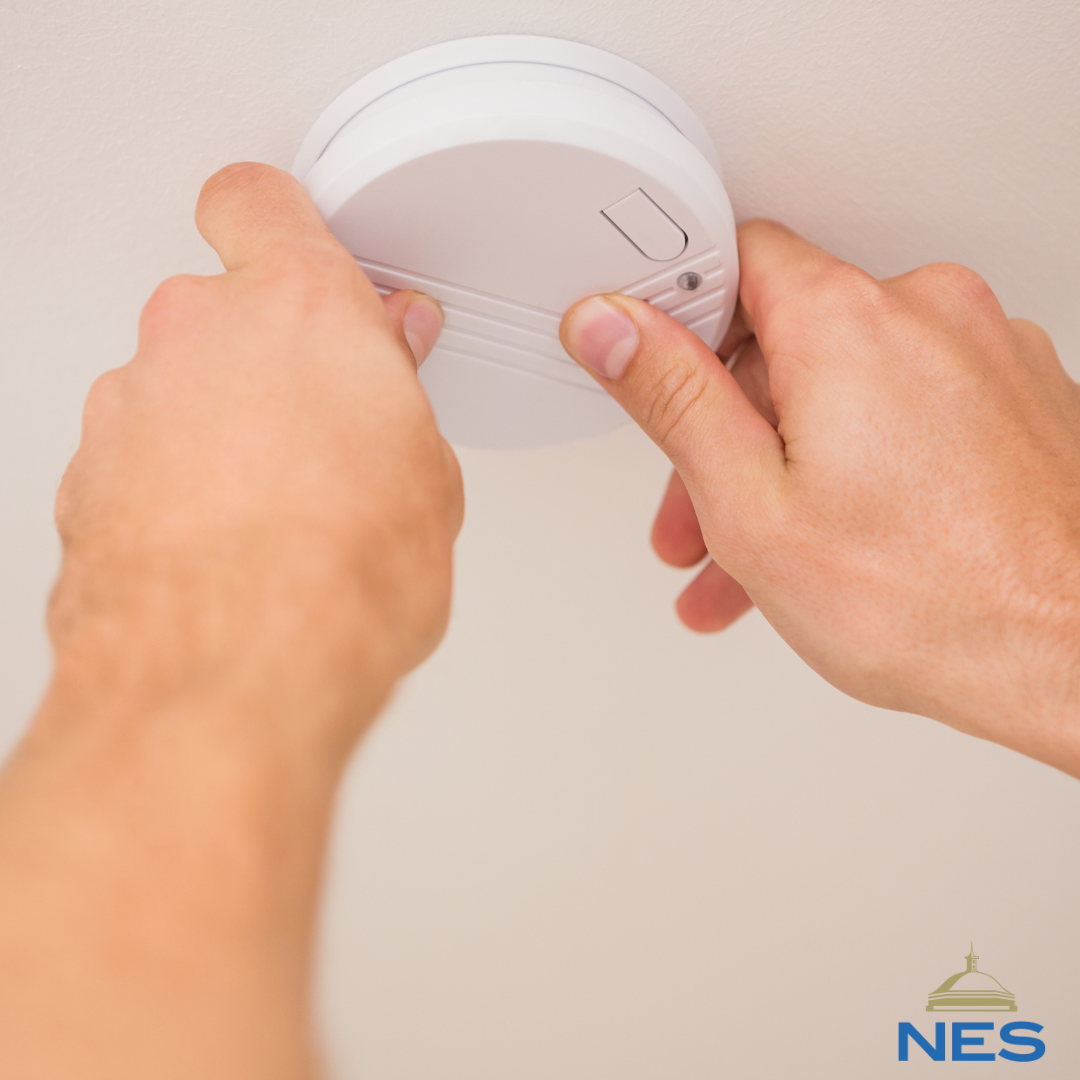Fire Prevention Week is currently underway and NES wants customers to remain safe by teaching the community about electrical safety and ways to reduce potential fire hazards. Fire Prevention Week was created by the National Fire Prevention Association (NFPA) and this year’s campaign strives to educate everyone about the importance of having working smoke alarms in the home.
Customers should follow these three steps to ensure their smoke alarms are working properly throughout their homes:
Install Install smoke alarms in every bedroom, outside each separate sleeping area (like a hallway), and on each level (including the basement) of the home.
Test Test smoke alarms at least once a month by pushing the test button.
Replace Replace all smoke alarms when they are 10 years old or stop responding when tested.
In addition to these smoke alarm tips, here are some other safety tips to help prevent fire hazards:
- Make sure all electric cords are tucked away, neat and tidy, but don’t place cords under carpet or rugs. Replace any cords that are damaged or frayed.
- Listen to your breaker. A breaker that trips immediately after it’s reset could signal an electrical problem and potentially cause a fire. It may just be too large an electrical load operating on that circuit or something more serious.
- Fix flickering lights. Loose wiring or a fixture that’s worn out can result in flickering lights. Turn off power and investigate the wiring and replace the fixture if necessary.
- Repair outlets that feel warm. If an outlet faceplate is warm to the touch, cut power at the breaker box and look for a loose splice, melted connections or burned insulation. It could also be that the wattage of the device you’re powering is too large for that outlet. Note: It’s not unusual for dimmer switches to be warm.
- Allow plenty of space around space heaters. Keep space heaters at least three feet away from any combustible materials such as bedding, furniture or drapes. Place the heater on a stable, level surface so it cannot be knocked over, and never leave it running unattended or while you’re sleeping.
- Never throw water on an electrical fire. Water conducts electricity so throwing water on a fire could cause it to get larger. Instead, use a chemical fire extinguisher by following these four steps:
1.Pull the fire extinguisher’s safety pin
2. Aim the nozzle at the base of the fire
3. Squeeze the extinguisher’s handle
4. Sweep the nozzle in a side-to-side motion until the flames are out
- Know when to fight and when to flee. Firefighters recommend that if you have any doubt about fighting a fire, get out of the house as quickly as possible and call the fire department. Don’t let the fire get between you and the exit.
To learn more about fire prevention, click here.
Tags:
